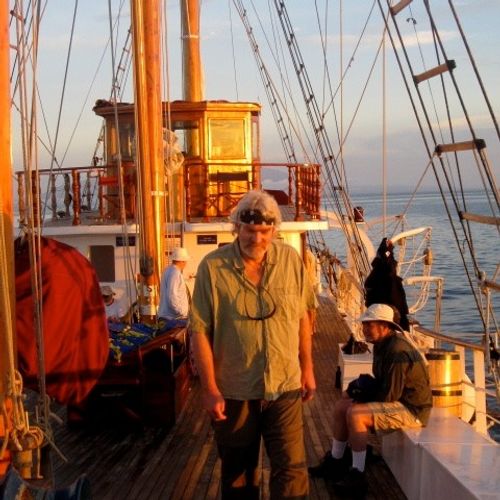Episode 4
Confronting Reality: Patience, Reflection, and Love in the Anthropocene
Roy Scranton's Learning to Die in the Anthropocene: Reflections on the End of a Civilization invites us to confront a sobering truth: we cannot escape our fate. As we grapple with the challenges of our time, Scranton emphasizes the importance of facing our future with patience, reflection, and love rather than panic or denial.
His reflections draw from a life steeped in experience, including his service in Iraq, where he learned that truly living often requires us to embrace the reality of mortality. This episode explores Scranton's compelling narrative, where a dark optimism emerges, suggesting that there lies a path forward even in the face of seemingly insurmountable challenges. Together, we will unpack how letting go of illusions can lead us to survive and potentially thrive, even when the odds appear stacked against us.
Join me as we navigate this philosophical terrain, offering a glimpse of hope amidst the chaos and a reminder that our engagement is paramount in this make-or-break decade.
Takeaways:
- In confronting our climate crisis, we must embrace a dark optimism that fuels our actions.
- Learning to let go of our illusions is essential to truly engaging with reality.
- As we navigate this perilous decade, our relationship with nature must be reconciled for survival.
- Scranton's reflections illustrate the importance of patience and love in facing our daunting challenges.
- While the odds of survival seem slim, our collective efforts can still make a meaningful difference.
- Engagement in climate action is crucial; every effort counts in the face of adversity.
#ClimateChange #BookReview #RoyScranton #anthropocene
Transcript
We cannot escape our fate.
Speaker A:Our future will depend on our ability to confront it, not with panic, outrage, or denial, but with patience, reflection, and love.
Speaker A:This is an excerpt from Roy Scranton's Learning to Die in the Reflections on the End of a Civilization.
Speaker A:The book is an eloquent, thoughtful, and sobering assessment of life in the Anthropocene.
Speaker A:I review Scranton's book and this episode of the Global warming is real podcast.
Speaker A:123 I recently finished reading Learning to Die in the Reflections on the End of a Civilization by Roy Scranton.
Speaker A:Scranton grew up in an Oregonian working class family.
Speaker A:A college dropout, wanderer and Iraq War veteran, he returned from his 14 month deployment, completed his undergraduate degree, earned a master's at the New School for Social research, and a PhD in English at Princeton University.
Speaker A:Scranton is an eloquent writer, allowing us to contemplate our time and circumstance in the broad context of history, philosophy, and psychology.
Speaker A:His worldview is informed by his experience in Iraq.
Speaker A:Learning to die isn't easy, Scranton writes.
Speaker A:In Iraq at the beginning I was terrified by the idea.
Speaker A:Baghdad seemed crazily dangerous, even though statistically I was relatively safe.
Speaker A:We got shot at, mortared and blown up by IEDs, but we wore high tech ballistic armor, we had great medics, and we were part of the most powerful military the world had ever seen.
Speaker A:The odds were good that I would come home maybe wounded but probably alive.
Speaker A:Yet every day I drove out past the wire on mission.
Speaker A:I looked in my Humvee's mirror and saw a dark, empty hole.
Speaker A:To survive in Iraq psychologically meant learning how to die.
Speaker A:Every morning, Scranton looked into the dark, empty hole of the future and pressed on past the wire, prepared to meet his fate.
Speaker A:Scranton's writing has a dark optimism, suggesting a hopeful path in the face of hopelessness.
Speaker A:The odds of our species surviving are slim, he writes.
Speaker A:The trouble we find ourselves in will likely prove too intractable for us to manage well, if we can manage it at all.
Speaker A:With that bleak assessment, he offers a ray of hope, citing German philosopher Peter it is characteristic of being human that human beings are presented with tasks that are too difficult for them without having the option of avoiding them because of their difficulty, we cannot escape our fate.
Speaker A:Our future will depend on our ability to confront it, not with panic, outrage, or denial, but with patience, reflection, and love.
Speaker A:Learning to die is learning to let go.
Speaker A:Learning to live, survive, and maybe even thrive, given whatever fate may hold, requires letting go of what binds us to on untenable denial of reality, raging at phantoms and clinging to illusions.
Speaker A:We gaze out at the world, trapped within the corporeal and temporal limits of our perception.
Speaker A:Even as we begin offloading intelligence to silicon qubits and algorithms, we are enslaved to unconsidered assumptions and ingrained behavior driven by ancient chains of reaction.
Speaker A:We may not always subscribe to Scranton's deterministic leanings throughout the text, but he presents a persuasive and engaging argument, looking out past the wire into the misty, dangerous, unknown future.
Speaker A:We must prepare to die to learn how to live.
Speaker A:There's always more we can do to stop climate change.
Speaker A:No amount of engagement is too little, and now, more than ever, your involvement matters.
Speaker A:To learn more and do more, visit globalwarmingisreal.com thanks for listening.
Speaker A:I'm your host, Tom Schuenemann.
Speaker A:We'll see you next time on Global Warming Is Real.



